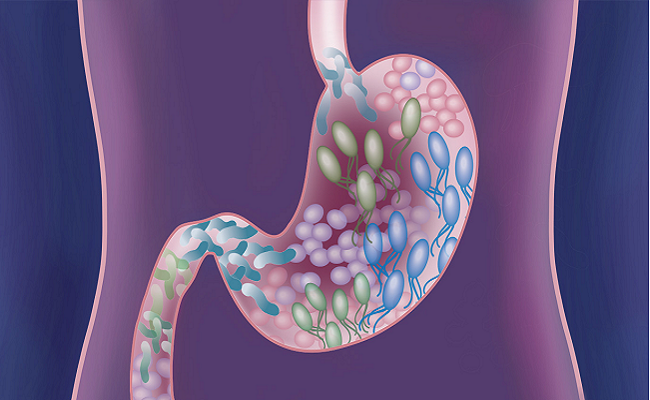.gif)
.gif)

The intricate world of gut health has captivated the attention of researchers and health enthusiasts alike. Beyond its primary role in digestion, the gastrointestinal tract, or gut, houses a vibrant ecosystem of microorganisms that profoundly impact our overall well-being.
Unveiling the Complexity of Gut Health: Gut health refers to the optimal functioning and balance of the gastrointestinal system, comprising an intricate community of microorganisms known as the gut microbiota. This diverse array of bacteria, viruses, and fungi forms a symbiotic relationship with the human body, influencing a multitude of physiological processes ranging from nutrient absorption and immune function to neurological and mental health.
The Gut Microbiota: Guardians of Health: The gut microbiota, an ecosystem comprising trillions of microorganisms, wields a remarkable influence on our well-being. These microscopic inhabitants play vital roles, such as breaking down dietary fibers, producing essential vitamins, modulating metabolism, and bolstering immune responses. An imbalance in the gut microbiota, termed dysbiosis, can lead to a cascade of health issues.
Importance of Gut Health Explored:
Digestive Health: A well-maintained gut fosters efficient digestion and nutrient absorption, contributing to optimal digestive health. A balanced gut microbiota helps prevent digestive disorders like irritable bowel syndrome (IBS), inflammatory bowel disease (IBD), and food intolerances.
Immune Function: The gut acts as a frontline defense, influencing immune system regulation. A diverse and balanced gut microbiota strengthens immune responses, guards against pathogenic invaders, and reduces the risk of autoimmune disorders and chronic inflammation.
Mental Health and Brain Function: The dynamic gut-brain axis facilitates constant communication between the gut and the brain. Research suggests that the gut microbiota profoundly influences brain function, mood regulation, and behavior. Imbalances in gut health have been associated with conditions such as anxiety, depression, autism spectrum disorders, and neurodegenerative diseases like Alzheimer's and Parkinson's.
Metabolic Health and Weight Management: The gut microbiota plays a pivotal role in regulating metabolism and energy balance. An imbalance in gut health can contribute to weight gain, obesity, insulin resistance, and metabolic disorders. Maintaining a diverse and healthy gut microbiota can support weight management efforts and metabolic well-being.
Nurturing a Healthy Gut: To cultivate and maintain a flourishing gut ecosystem, consider the following strategies:
A deep understanding of gut health unlocks the door to comprehensive well-being. By nurturing a diverse and balanced gut microbiota through a wholesome diet, regular exercise, mindful antibiotic use, and stress management, individuals can optimize their digestive health, bolster their immune defenses, support mental well-being, and maintain metabolic equilibrium.
Embracing the significance of gut health empowers individuals to embark on a journey towards holistic vitality, ensuring a symbiotic relationship between their gut and overall health.